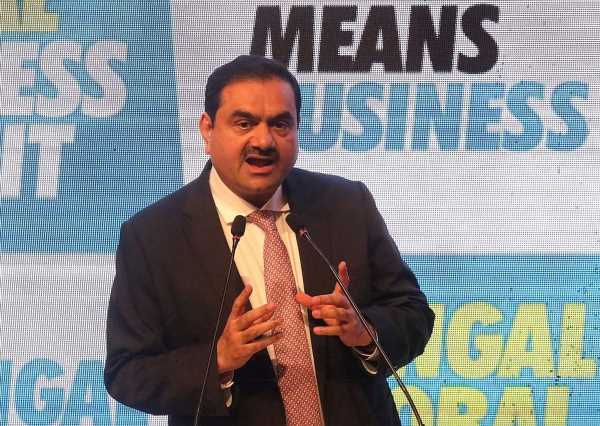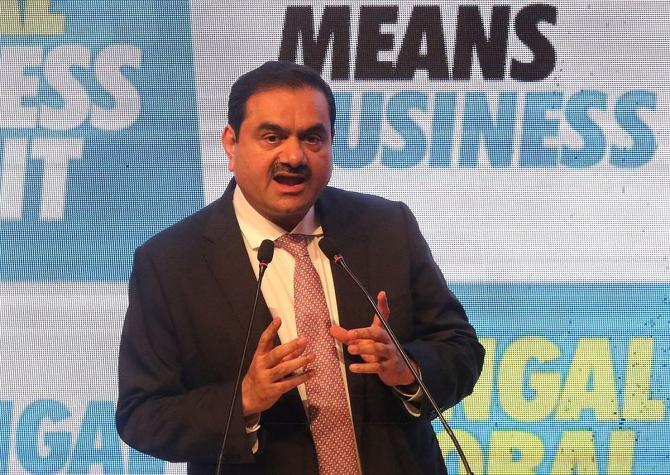‘The group has quality physical assets’
‘If there is any reason to change my holding in Adani group stocks, the Hindenburg report on the group is not the one.’
Christopher Wood, global head of equity strategy at Jefferies, has held on to his exposure to Adani group stocks in his India long-only equity portfolio despite a scathing report by Hindenburg Research earlier this year.
In a freewheeling conversation with Puneet Wadhwa/Business Standard on the sidelines of the Jefferies Annual India Forum in New Delhi, Wood shared his views on his strategy for the Indian markets in the backdrop of developments back home and globally.
The first of a two-part interview:
You have retained Adani Ports despite the negative news surrounding the group since January 2023-end. Why’s that?
I have held Adani Ports even before the Hindenburg report came out, and the report is no reason to change this holding.
I want some infrastructure plays in my portfolio. When it comes to Indian exposure, the biggest exposure in my portfolio has been in private sector banks.
That apart, I also have exposure to property stocks.
If there is any reason to change my holding in Adani group stocks, the Hindenburg report on the group is not the one.
I can add another 20 names in my portfolio from India, but the idea is to have a concentrated portfolio.
But, how come the Hindenburg report did not shake your confidence in Adani group stocks?
My understanding is that there is nothing new in that report for those who invest in the stock market.
The group has quality physical assets. It is not like some, or all of them, are theoretical blue-sky stories and not physical assets.
That said, I do not have all my investments in one group.
Indian equity markets, you have maintained in your commentary since the past few years, as one of the best structural markets from a 5-year perspective. But the markets/frontline indices haven’t done anything in the last 20 months. Is the sheen wearing off?
Not at all. I have been very encouraged by the performance of the Indian stock markets.
India is the best growth story globally, and not just in Asia.
When I came to India in April/May 2022, what was noteworthy was the fact that the Indian markets were at historically high valuation to commence a monetary tightening cycle.
What’s commendable is the resilience of the Indian markets despite the monetary policy changes.
The earnings growth has caught up with the valuations, which are now more in line with historical averages than a year ago.
Hence, the markets have been tightening since the past few months in response to the Reserve Bank of India’s monetary tightening cycle. The RBI has hiked more than expected.
So, do you expect the RBI to pause and pivot soon?
The market is assuming that the RBI is done with the rate hikes, which is also my base case.
I feel that the reason for the RBI to raise rates now is just to copy the US Fed.
If I was the RBI, I would keep the rates on hold even if the US Fed hikes.
One does not need to follow the Fed just for the sake of it.
My base case is that the US Fed, too, should keep the monetary policy on hold. But, it is not that simple.
The fundamental issue with the US is inflation, which is worrying.
You speak to a lot of foreign investors as well. What’s their key concern as regards Indian markets?
The key concern of foreign investors regarding India in the last 18 months has been the high valuations.
The other concern was the reopening of China after a Covid-induced lockdown, which would have seen money flow from Indian equities to China.
Which other equity markets, besides India, according to you, look attractive from a long-term view? Where do you see the big money move, and which sectors will they chase — globally and in India?
Right now, the other story in Asia that is increasingly looking attractive since the last few years is Indonesia.
In fact, Indonesia is looking better than the Indian equities, albeit only in the near-term.
For the rest of 2023, do you expect muted returns from the Indian equities?
No, if the markets get a hint that the RBI will cut rates, they’ll get more excited.
The risk to global markets is a recession in the US. This will be more of a risk for the information technology and the banking sectors.
Disclaimer: This article is meant for information purposes only. This article and information do not constitute a distribution, an endorsement, an investment advice, an offer to buy or sell or the solicitation of an offer to buy or sell any securities/schemes or any other financial products/investment products mentioned in this article to influence the opinion or behaviour of the investors/recipients.
Any use of the information/any investment and investment related decisions of the investors/recipients are at their sole discretion and risk. Any advice herein is made on a general basis and does not take into account the specific investment objectives of the specific person or group of persons. Opinions expressed herein are subject to change without notice.
Feature Presentation: Rajesh Alva/Rediff.com
Source: Read Full Article


